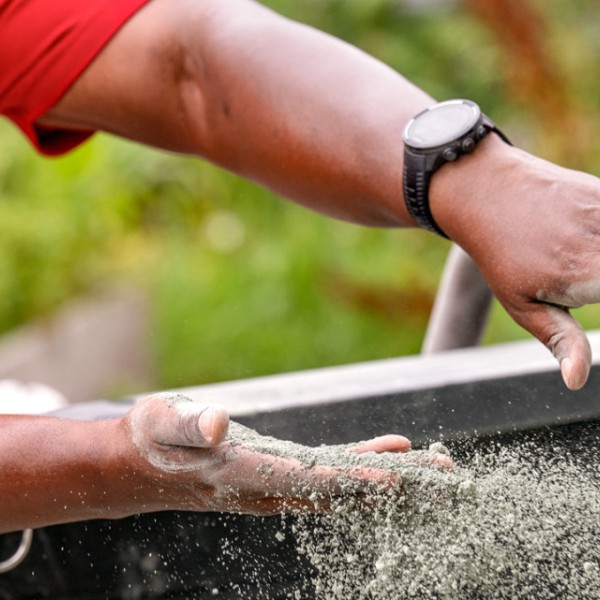When the Food and Agriculture Organization of the United Nations challenged young researchers to think of ways to end hunger and transform agrifood systems, it hoped to inspire innovative thinking in sustainable development.
More than 160 teams answered the Transformative Research Challenge (TRC) by focusing on one of “four betters” needed for healthy diets and a healthy planet: better production, better nutrition, better environment and better life.
The “better life” criterion, which focuses on the promotion of inclusive economic growth by reducing inequalities, benefited from Cornell University’s Parfait M. Eloundou-Enyegue, professor of global development, who served as a jury member during the competition at the World Food Forum held in Rome Oct. 17-21.
For the competition in Rome, 20 teams were chosen to be paired with mentors who helped them produce, refine and sharpen their research outputs. Out of these, 10 finalists were selected to present their ideas on stage to a panel of judges.
There was selection on the jury side as well, with two judges chosen from universities among the Agrifood 5 Alliance. These member universities — China Agricultural University, Cornell University, University of California Davis, University of Sao Paulo, and Wageningen University & Research — are recognized for their scientific knowledge, research expertise, teaching and training in sustainable agriculture and food systems. Cornell was included in the final jury and was represented by Eloundou-Enyegue, who provided an expert fit to the “better life” criterion given his research interrelationships between population, social change, and sustainable development.
Other judges included Maximo Terero, chief economist at UN FAO; Ismahane Elouafi, chief scientist at UN FAO; Nafn Amdar, research officer with the International Water Management Institute; Saul S. Morris, director of program services at GAIN; and Xu Xiuli, professor of humanities and development studies at China Agricultural University.
Embracing an integrated food systems approach, all the participants showcased creative efforts to improve food systems across the world in ways that simultaneously achieve multiple objectives in the sectors of poverty, health, environment, gender, and equity, according to Eloundou-Enyegue. “The competition was a transformative experience for these young researchers to both showcase their talents and to learn from peers from across the world,” he said.
In the end, two projects were named co-winners: “ZERO TO HERO: Zero Food Waste and Loss through Empowering Mothers’ Champions as the HERO,” by Annisa Fajriani, Davrina Rianda, Dyana Sari and Deviana Siregar with mentorship from Dimas Muhammad; and “Olive tea: the Mediterranean matcha? Assessing the sustainability of traditional Mediterranean medicine,” by Sofia Cavalleri and Dr. Mauro Agnoletti with mentorship from Sumantra Ray.





